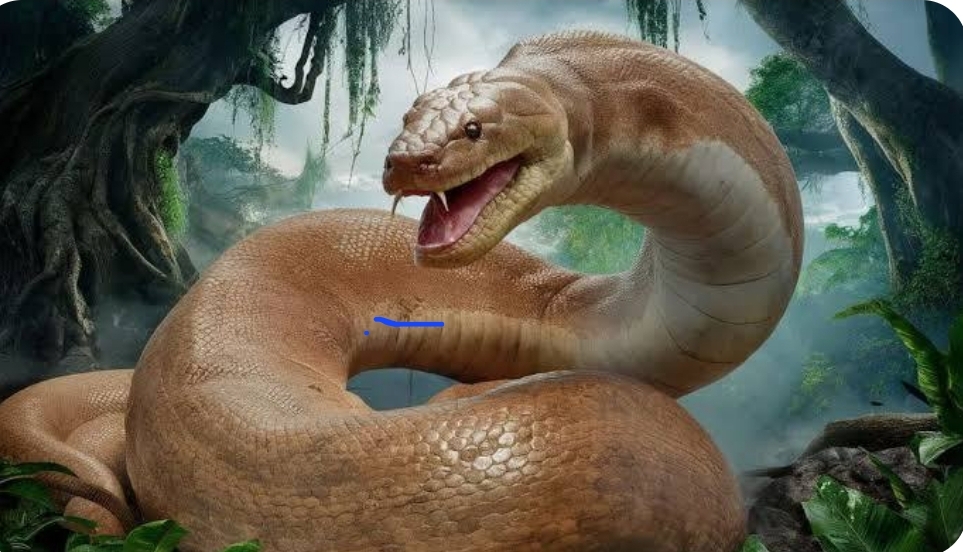Discovery of a giant snake, the largest of all time?

In a groundbreaking find, a team of scientists in India has unearthed the fossilized remains of what might be the largest snake ever discovered. Named Vasuki Indicus, this massive serpent is estimated to have stretched up to 15 meters in length.
Unveiling a Prehistoric Giant
The discovery took place at the Panandhro lignite mine in Gujarat, where researchers stumbled upon 27 vertebrae belonging to the colossal creature. These fossils date back to about 47 million years ago, during the Eocene epoch, providing a rare glimpse into the prehistoric world.
Estimating the Size of the Beast
The research team used the width of the unearthed vertebrae to estimate the snake’s size, suggesting it measured between 11 and 15 meters long. While acknowledging some margin of error in their estimates, the findings were significant enough to make headlines and were detailed in the journal Scientific Reports.
Anatomy and Lifestyle of Vasuki Indicus
Vasuki Indicus is classified under the Madtsoiidae family, an extinct group distantly related to modern pythons and anacondas. The snake’s wide, cylindrical body indicated it was primarily terrestrial, unlike aquatic snakes which tend to have flatter bodies. Based on the attachment points of the ribs on the vertebrae, it’s clear that Vasuki Indicus was built much like today’s anacondas, suggesting it might have employed a similar hunting technique—lying in wait to ambush and constrict its prey.
The Climate and Habitat
Scientists believe that this serpent thrived in a warm climate, with average temperatures around 28 degrees Celsius, which would have supported a lush, forested environment ideal for a predator of its size.
Still Wrapped in Mystery
Despite these discoveries, much about Vasuki Indicus remains shrouded in mystery. The snake’s muscle structure and diet, for instance, are still topics of speculation and ongoing research. Future studies, including analysis of the carbon and oxygen content in the fossils, are expected to provide deeper insights into the life and times of this gigantic reptile.
This remarkable discovery not only challenges our understanding of prehistoric wildlife but also opens up new avenues of thought about the evolution and capabilities of ancient snakes. The tale of Vasuki Indicus continues to captivate scientists and enthusiasts alike, as they unravel the story of one of nature’s most formidable predators.





